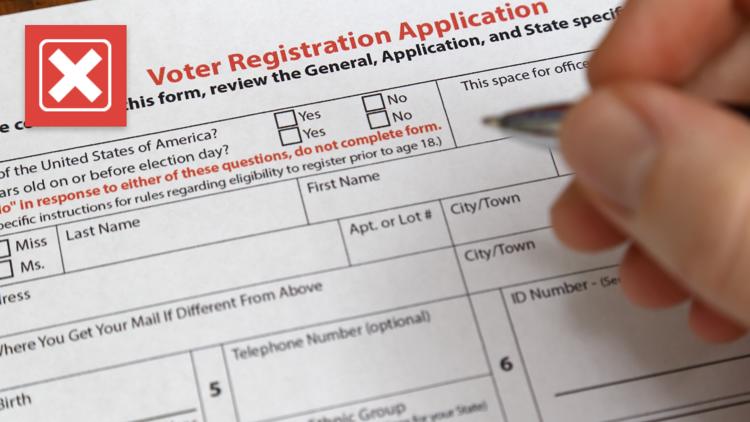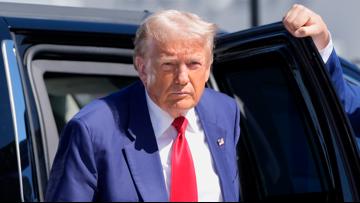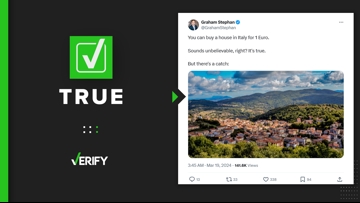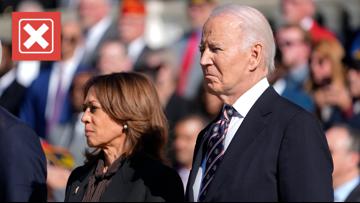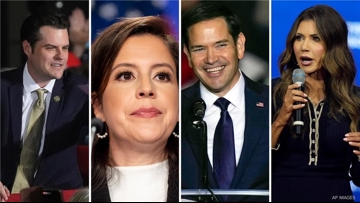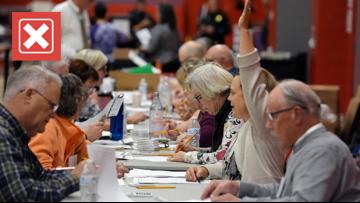Ahead of the 2024 presidential election, immigration and voting rights have been hot-button issues across the country.
Recently, those topics were the subject of a letter that Mississippi Secretary of State Michael Watson sent to U.S. Attorney General Merrick Garland.
The letter expressed concern that a 2021 executive order signed by President Joe Biden “creates numerous opportunities” for ineligible voters, including felons in the prison system and illegal migrants, to register to vote.
People online sharing a Fox News article on the topic thanked Watson for the letter.
“Thank you @MichaelWatsonMS, for leading the charge to stop the Biden administration’s outrageous attempt to register illegal migrants to vote,” one X post retweeted by Watson said. Watson replied saying “It’s going to take all of us working together.”
Other people online have called Biden’s 2021 executive order an “illegal voting scheme” and wondered why it hasn’t been investigated.
THE QUESTION
Does Biden’s executive order create opportunities for ineligible people to register to vote?
THE SOURCES
- Executive Order on Promoting Access to Voting
- U.S. election code
- USA.gov
- Stephen W. Yale-Loehr, a professor of immigration law practice at Cornell Law School
THE ANSWER
No, Biden’s executive order doesn’t create opportunities for ineligible people to register to vote.
WHAT WE FOUND
Biden signed the executive order in question, titled Executive Order on Promoting Access to Voting, on March 7, 2021. It instructed different government agencies to make voting more accessible by providing more resources to eligible voters. It didn’t “create opportunities” or grant access to voter registration, voting rights or privileges to people who aren’t eligible to vote. The order says it is a policy of Biden’s administration to “promote and defend the right to vote for all Americans who are legally entitled to participate in elections.”
For example, as a result of the executive order, the U.S. Equal Employment Opportunity Commission (EEOC) implemented a plan to provide accessible printed information about voter registration and volunteer opportunities for the general public.
Any claims the executive order would allow ineligible voters, like noncitizens, to vote are false, Stephen W. Yale-Loehr, a professor of immigration law practice at Cornell Law School, told VERIFY.
“Nothing in the executive order allows noncitizens to vote … The executive order clearly states that the executive order only protects the right to vote ‘for all Americans who are legally entitled to participate in elections.’ Noncitizens, even green card holders, are not allowed to vote in national elections,” Yale-Loehr said.
Further, Yale-Loehr said no president can issue an executive order allowing noncitizens to vote. That is because Congress banned noncitizens from voting in federal elections through the Illegal Immigration Reform and Immigrant Responsibility Act of 1996.
“Only Congress can change the law to allow noncitizens to vote in federal elections, and even that would probably require a constitutional amendment, as it did to allow women to vote,” Yale-Loehr said.
U.S. code makes it illegal for any noncitizen to vote for federal office, including for president, vice president, the Senate and the House of Representatives. However, federal law specifies that noncitizens are allowed to vote for other offices if they’re allowed to “under a State constitution or statute or a local ordinance.”
No state grants noncitizens the right to vote in statewide elections, such as those for governor, according to USA.gov. But many state constitutions don’t explicitly prohibit local governments from allowing noncitizens, including undocumented immigrants, to vote in local elections.

